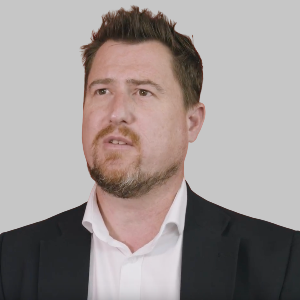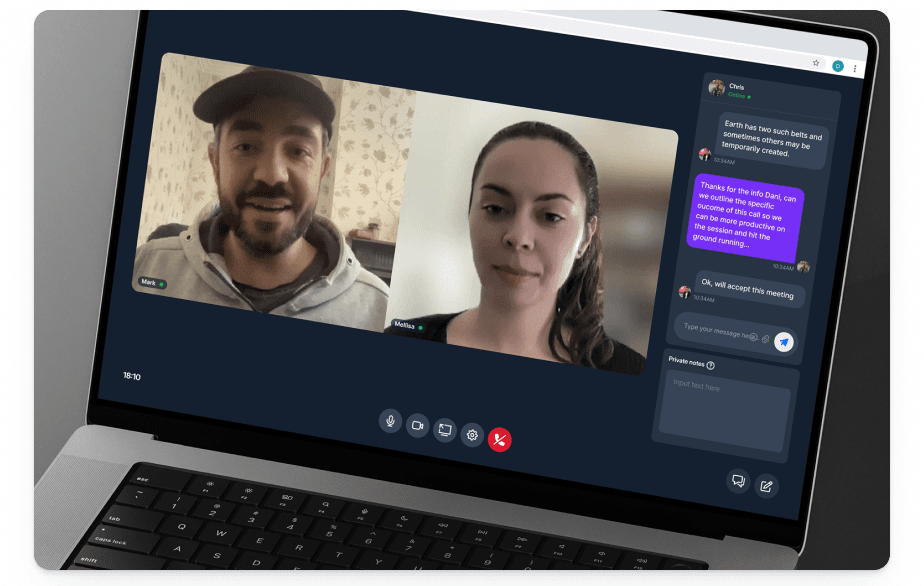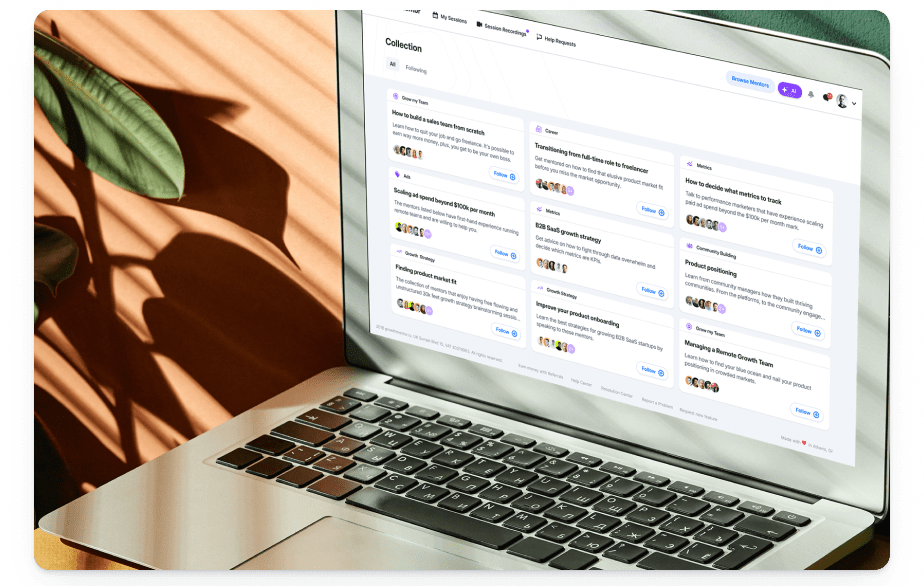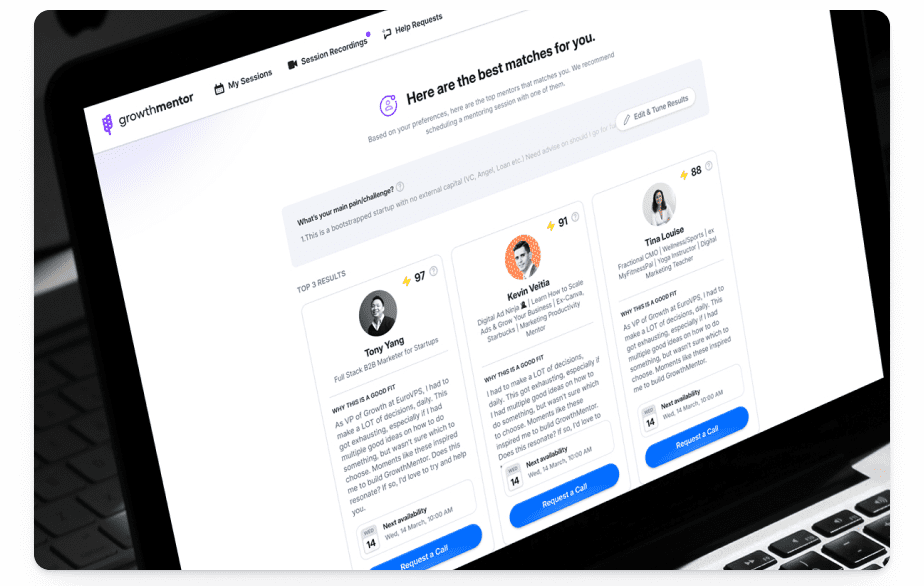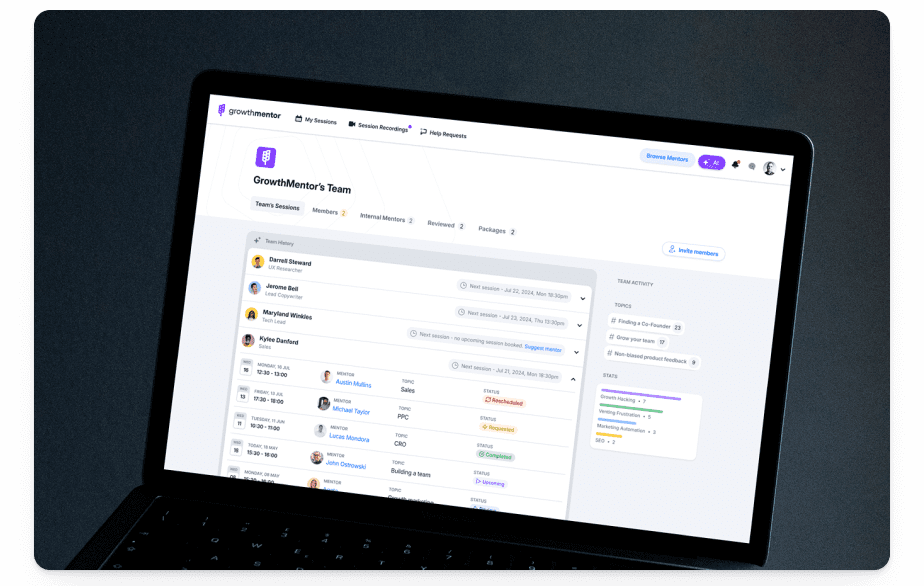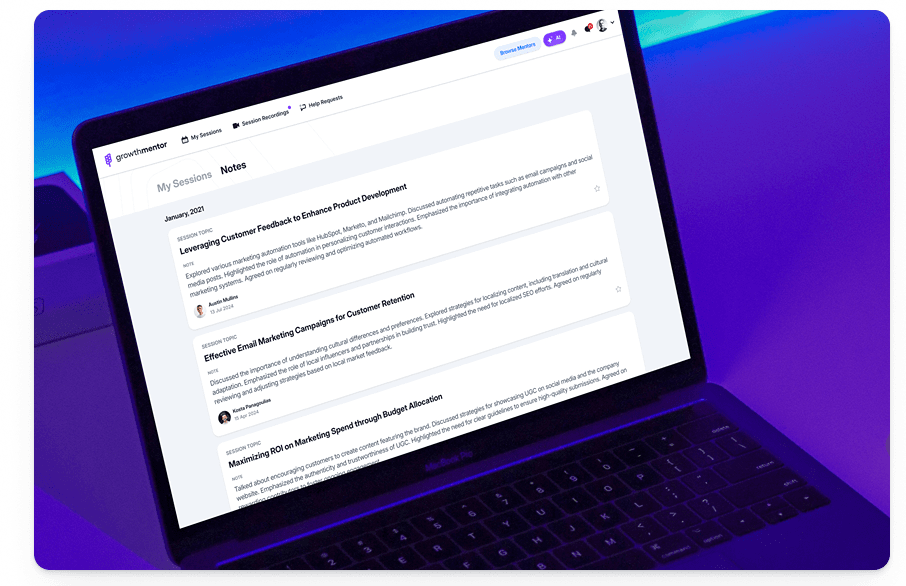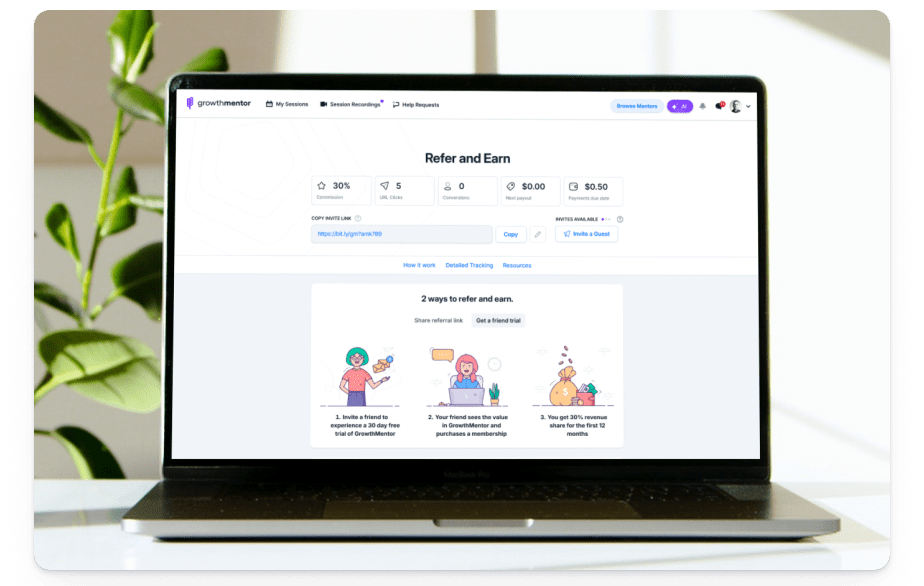“It’s insane how I’m able to hop on Zoom calls with hundreds of experts that work at some seriously impressive companies!”


The easiest way to find no-code mentors
Connect with the right people and get unstuck
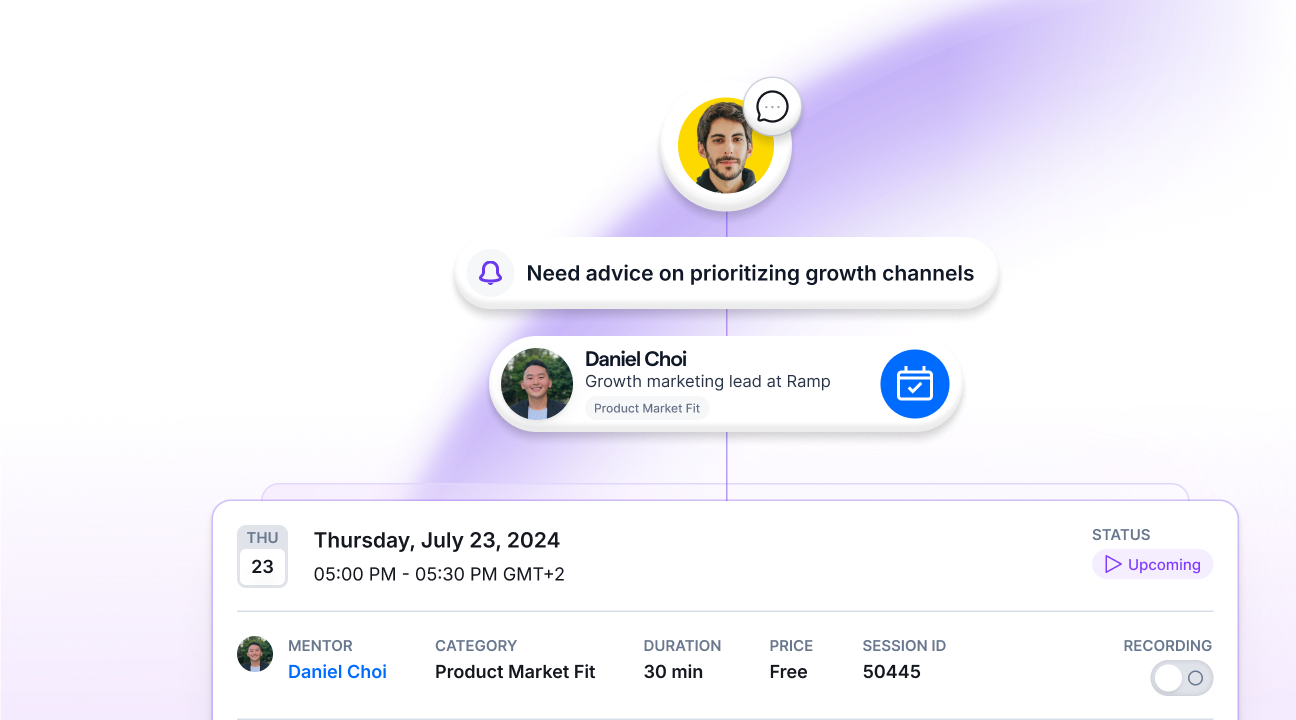
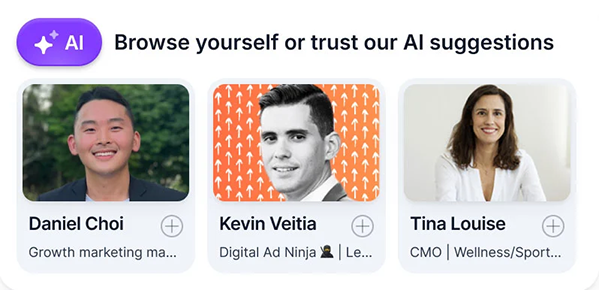
Find your mentor
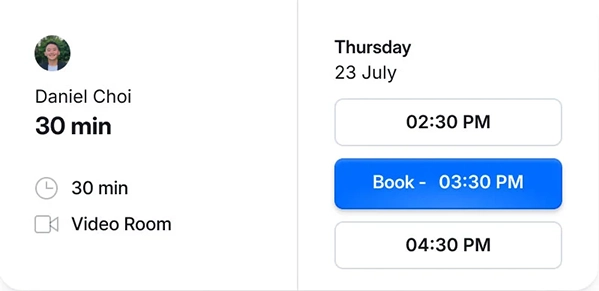
Book a Call
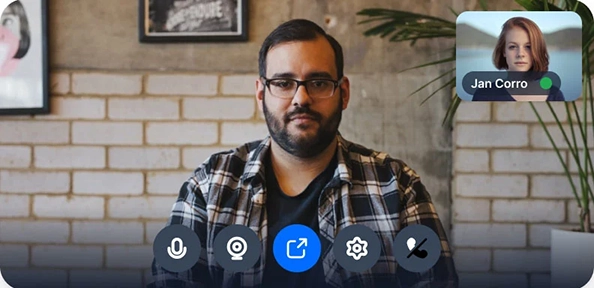
Get unstuck
No-code mentors at your fingertips
What would you like to get better at today?
Just a few of the topics being discussed over casual conversations on GrowthMentor
Book Zoom calls with vetted growth mentors and get personalized advice that's relevant to your situation.
How do we choose a no-code platform?
How do we build no-code workflows?
How can we personalize user experiences?
How can we integrate no-code APIs?
How do we scale our no-code implementations?
What’s the advantage of no-code platforms?
How do we build features with no-code tools?
How do we debug no-code apps?
How do we enforce compliance standards?
How do we wireframe for no-code apps?
How do we expand our no-code app features?
What are the limits of no-code platforms?
Should we build an MVP with a no-code tool?
What’s the scalability of a no-code app?
All your questions about mentorship, answered
How can a no-code mentor help me?
No-code is a new and exciting field that’s making app building accessible even if you aren’t a developer. And with the expansion of AI tools, the future of no-code looks even more interesting.
But just because no-code makes app–building easier doesn’t mean that it comes without a learning curve.
Plus, while no-code tools have come a long way in the last few years, they still have their limits. It can be hard to determine if a platform is a good fit for you before investing a great deal of time and effort into it.
Not to mention there’s no true substitute for a developer’s keen eye and experience.
However, if you’re curious about the field, you could simply start by poking around in a no-code tool.
If you’d prefer more formal education, you may find your options a bit more limited since this is a newer field and true expertise isn’t common.
Which is exactly why you’ll want to talk to a no-code mentor. They can act as your guide to all the ins and outs of the field.
A mentor’s “done-with-you” approach is particularly helpful for DIY fields like no-code where you want to understand the why behind it rather than treating it like a black box.
A no-code mentor can help you:
- Select the right tool for your project’s or company’s needs
- Build a no-code strategy with systems to measure success
- Introduce you to the no-code development cycle
- Shortcut the learning curve for a tool by providing tips and tricks
With a mentor’s help, you’ll have a solid foundation for getting started in no-code.
When should I talk to a no-code mentor?
If you’re not a developer but you want to build an app or proof of concept, it may be the right time to talk to a no-code mentor.
No-code is especially a good choice if:
- You’re a non-technical solo founder wanting to test MVPs
- You’re building an app as a side project
- Your development team is small and you want to experiment without taking up dev resources
- You want to understand the app development process better but aren’t quite ready to learn a coding language
- You need to automate simple or small tasks that feel too small for your devs
And a no-code mentor can help you outline a plan of attack for any of the above scenarios.
Why should I talk to a mentor rather than just take a course?
Courses and blog articles can teach you workflows for specific no-code platforms. But, they won’t answer questions like: “what’s the best platform for my needs?”
For that, you need someone with experience.
Our mentors aren’t fluffy theorists. They’ve been in the trenches and been hands-on with the work. They’ve seen fantastic successes, spectacular failures, and everything in-between. They know what works and what doesn’t.
So, you could spend hundreds of hours reading articles, taking courses, and testing out random no-code platforms.
Or you could shortcut all the frustration by talking to a mentor who has walked the path before. And thus get the confidence your no-code plans are on the right track.
Why should I trust GrowthMentor’s mentors?
Excellent question. After all, the “mentorship” world is full of high-priced consultants, armchair analysts who have never done the work themselves, and outright snake-oil salesmen looking to make a quick buck.
But, there are plenty of experts out there who want to share their experience and knowledge. At GrowthMentor, we’re lucky to have 700+ of those experts.
The secret comes from our vetting process. We not only double-vet all of our mentors so only the top 3% makes it through our process, we also look at their soft skills. Because no one wants a mentor who’s a snob or a jerk.
On top of it, 85% of our mentors don’t charge an extra fee. Why?
The short answer: Because they want to help people.
The long answer is because…
- They enjoy sharing their knowledge
- They learn from their mentees
- They want to be a “force for good” in the business world
- They want to pay it forward
But don’t just trust our word on it. Hear from the mentors themselves.
Join the most uplifting community on the internet
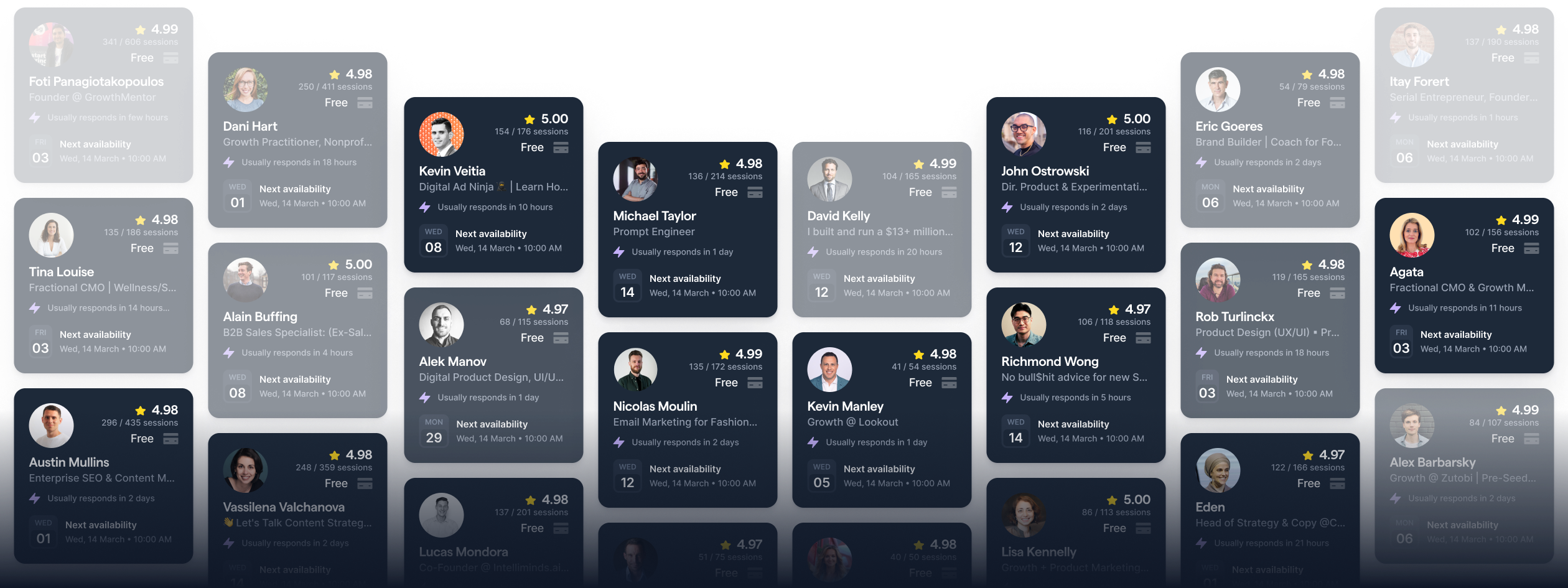
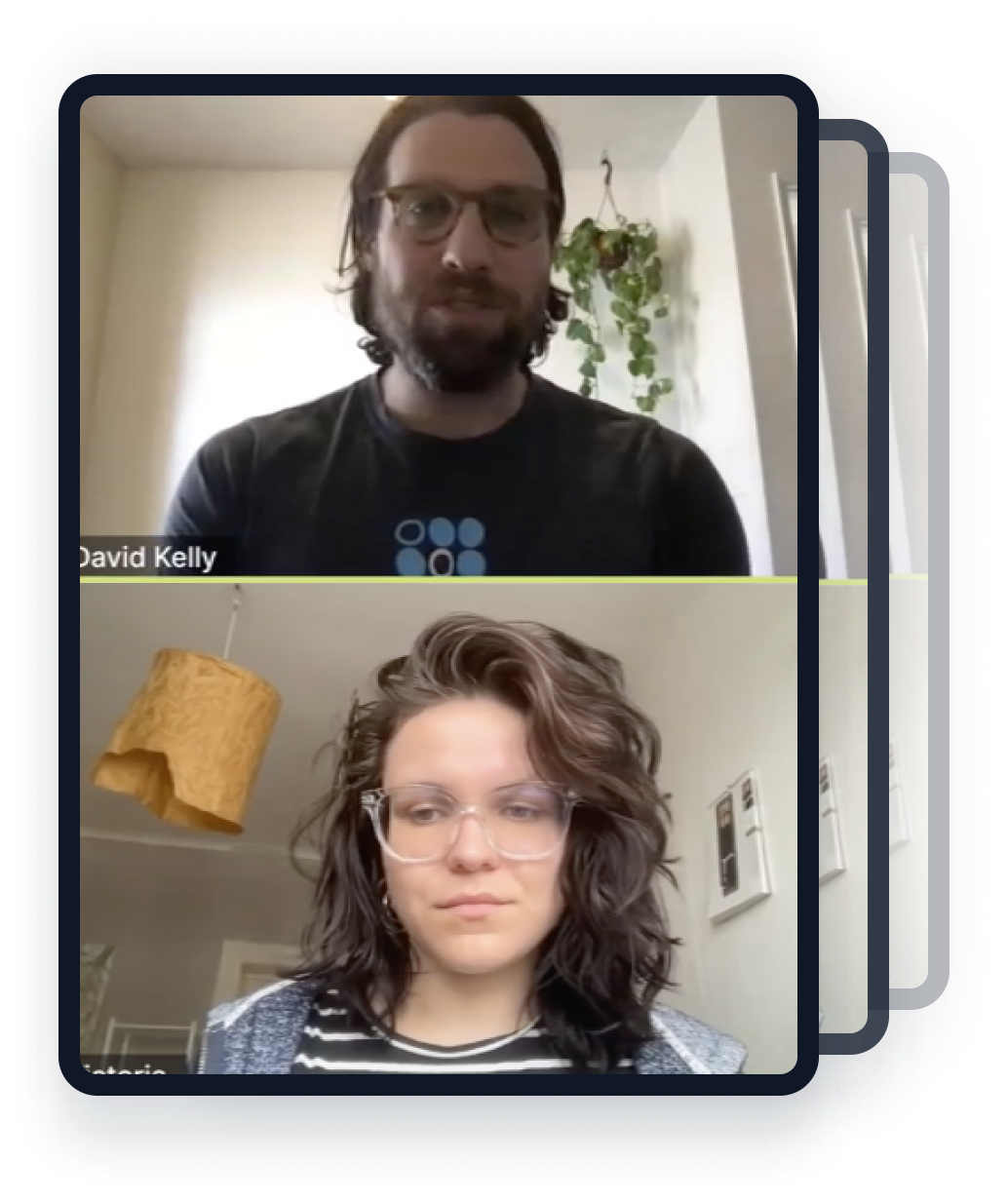



.jpeg)

